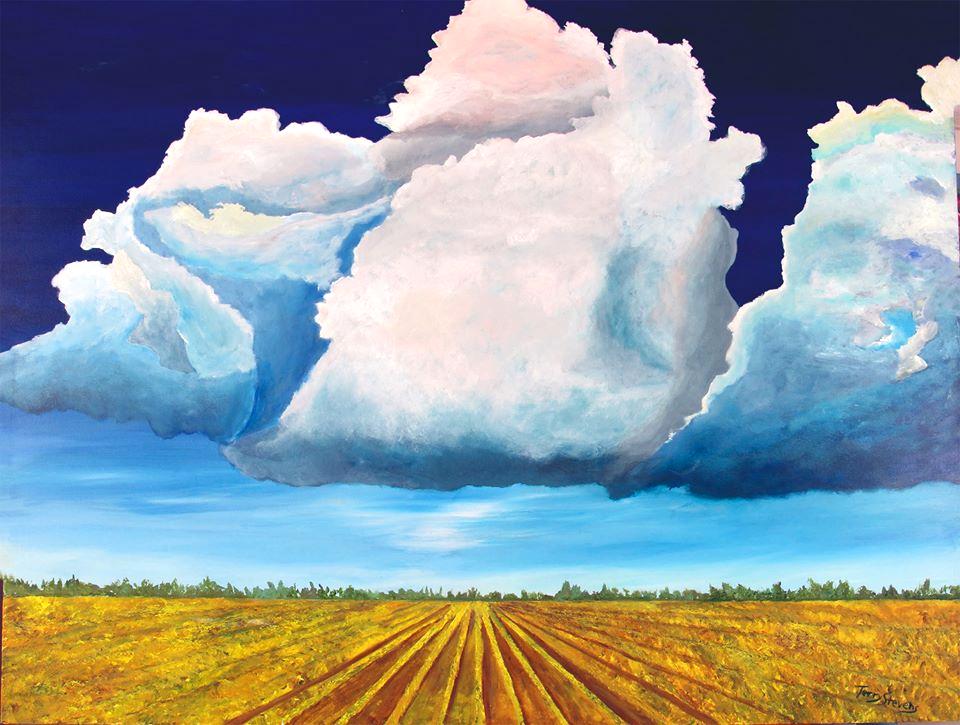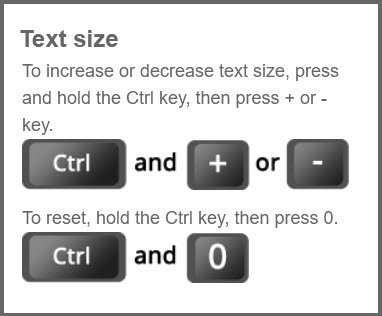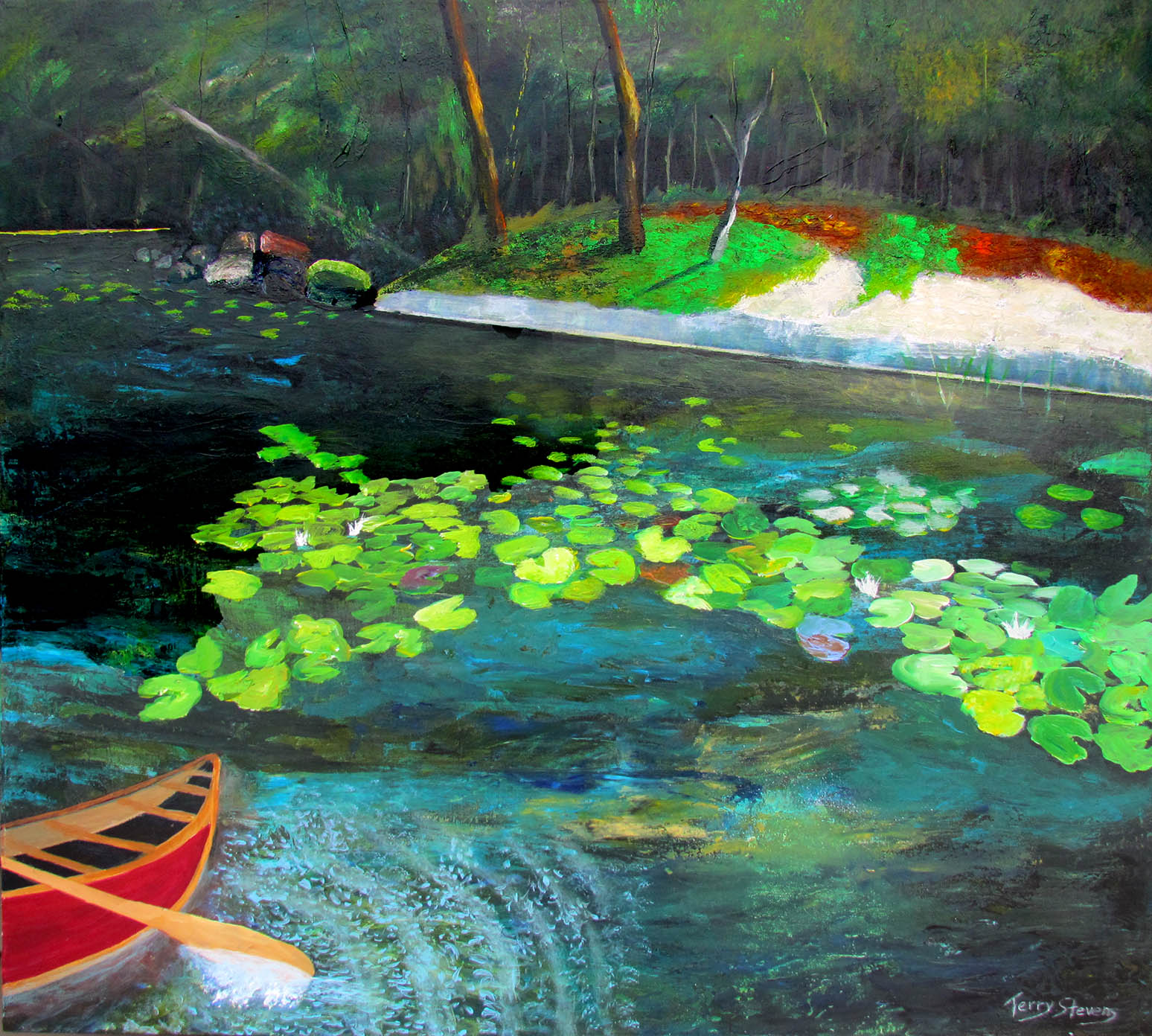"I had to decide whether to live or die."
In April of 2013, I had a Wallenburg's syndrome stroke and spent six weeks in the Intensive Care Unit (ICU) and a further three weeks in the rehab unit at the Queensway Carleton Hospital (QCH) in Ottawa. While in the ICU, I was not able to eat or breathe on my own, depending on staff and machines for support. Although I experienced challenges in the ICU fortunately kept improving daily and was told that I had made great strides because of being surrounded by supportive healthcare staff who kept encouraging me to do more each day. At the outset, my doctor told my wife that I may not be able to breathe, walk or talk on my own again, but I gradually passed each test over my 9-week stay.
Looking back at my hospitalization, being an artist, I thirsted for colours as there were no paintings on the walls. When I went home, I completed two paintings “A Sunny Day” and “Going Home” and donated them to the QCH in gratitude for the wonderful care that I received there. They now hang on the walls of the ICU ward and the rehab Unit. I also spoke at the Pembroke Regional Hospital to doctors, nurses, and patients; the QCH, and Ottawa Hospital during Nurses Week to give gratitude for their care and compassion. A mailer was sent out on my behalf, which much to my surprise raised $60,000 for new equipment for the ICU unit at the QCH.
On a personal level, I was faced with a stark decision to make in the ICU. I had to decide to live or die. It appeared as a meter. If it went to the right, I would die, to the left, I would live. This type of stroke had a high probability of having an extremely challenging recovery, but I knew that if I put my mind, spirit, and body together the road to recovery could be engaged. Another helpful statement I found was: 'Prayer is activity dedicated to realization' by K.G Mills. I knew that I had to be active. While at rehab, I went to the gym every day, sometimes reluctantly (The rehab police would gently encourage me) and week by week increased my strength and mobility. Having hope and the support of others helped me throughout my journey to recovery. Writing became part of the healing process as I wrote poems of gratitude for the healthcare team.
After going home, I started bike riding, increasing my stamina. Early on, I rode for 1 then 5 kilometers, and gradually increased the cycling to 10 kilometers. Within a year I was able to participate in the Gran Fondo 65K ride. Apparently, my determination and willpower to get my life back inspired others. It was recognized that my success might help other patients recover from a stroke. I was encouraged by my doctor and a physiotherapist to start writing about my experience, helping others who experience similar challenges concerning recovery, finding hope, and living a full life. I never accepted defeat and had a passion for helping others in the same situation. My sense of humor let me ride out the lows that a devastating stroke could have had on me. I can’t tell you how grateful I am to have survived.
How did having a stroke change your life?
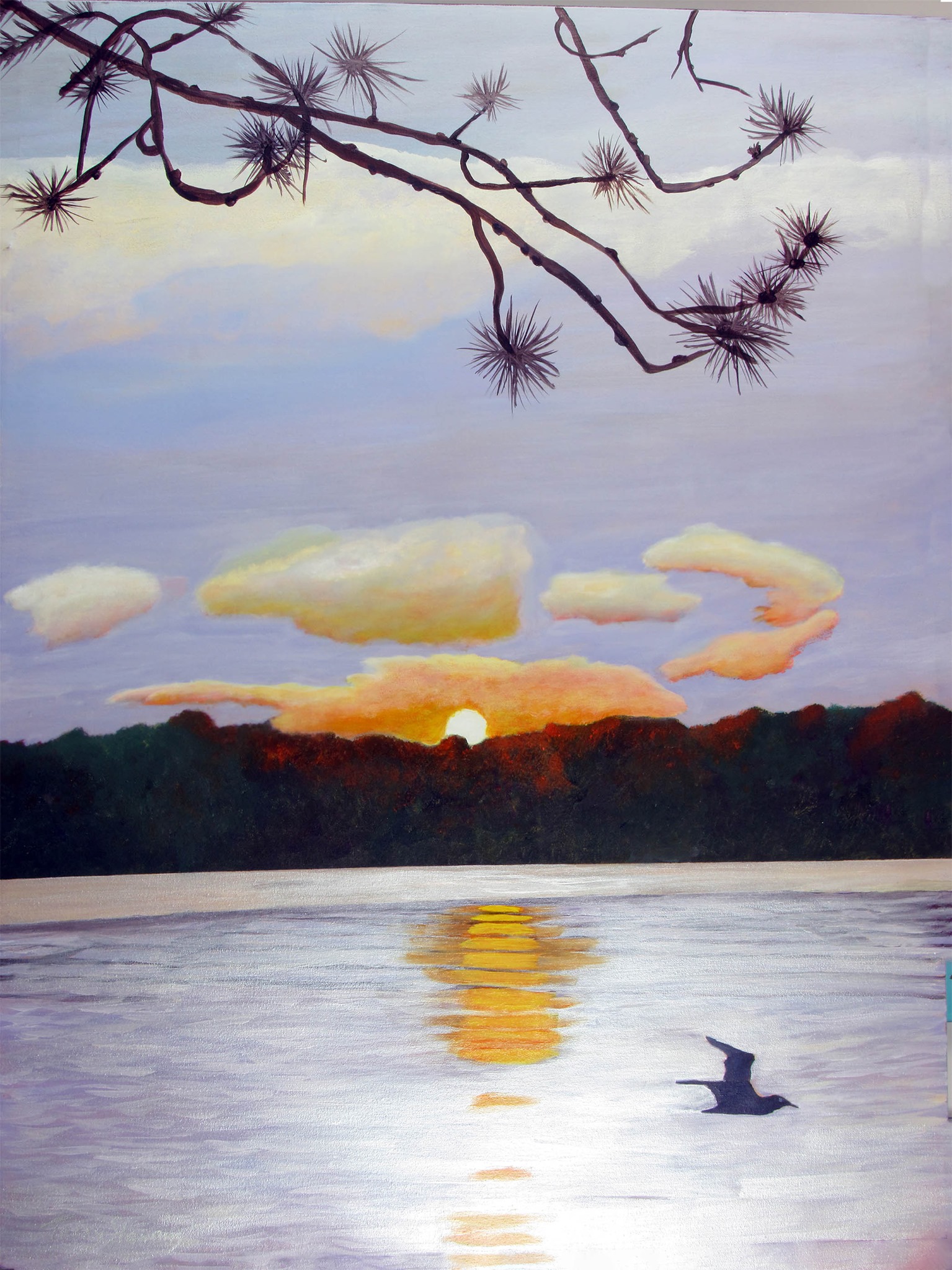 A stroke is a transformational event. Each person is different, and the impact and consequences vary for each patient. I chose to paint when I could not sleep, which buoyed up my spirit. Gratitude and compassion grew as I 'dodged a bullet' and built a new and more fulfilling life as a stroke survivor. I still experience minor challenges and I do my best to practice turning them into opportunities. I know that I was extremely fortunate. My speech-language pathologist was tremendously helpful, and despite the paralyzed vocal cord diagnosis, I can still sing, and speak on the phone and Zoom calls, as well as publicly. As I look back, I realize that my mindset was a vital part of my recovery. Repeating helpful statements such as:
A stroke is a transformational event. Each person is different, and the impact and consequences vary for each patient. I chose to paint when I could not sleep, which buoyed up my spirit. Gratitude and compassion grew as I 'dodged a bullet' and built a new and more fulfilling life as a stroke survivor. I still experience minor challenges and I do my best to practice turning them into opportunities. I know that I was extremely fortunate. My speech-language pathologist was tremendously helpful, and despite the paralyzed vocal cord diagnosis, I can still sing, and speak on the phone and Zoom calls, as well as publicly. As I look back, I realize that my mindset was a vital part of my recovery. Repeating helpful statements such as:
“Keep your mind so filled with light, truth, and love, that sin, disease, or death cannot enter” Mary Baker Eddy – Christian Science
“Healing is a lessening of the objective confinement” Kenneth G. Mills.
My supportive wife, her parents, their pastor, friends, and community prayed for me and were with me all along the way. Humor, mindfulness, and appreciation helped me succeed against daunting odds.
What do you feel you have accomplished through your stroke and recovery?
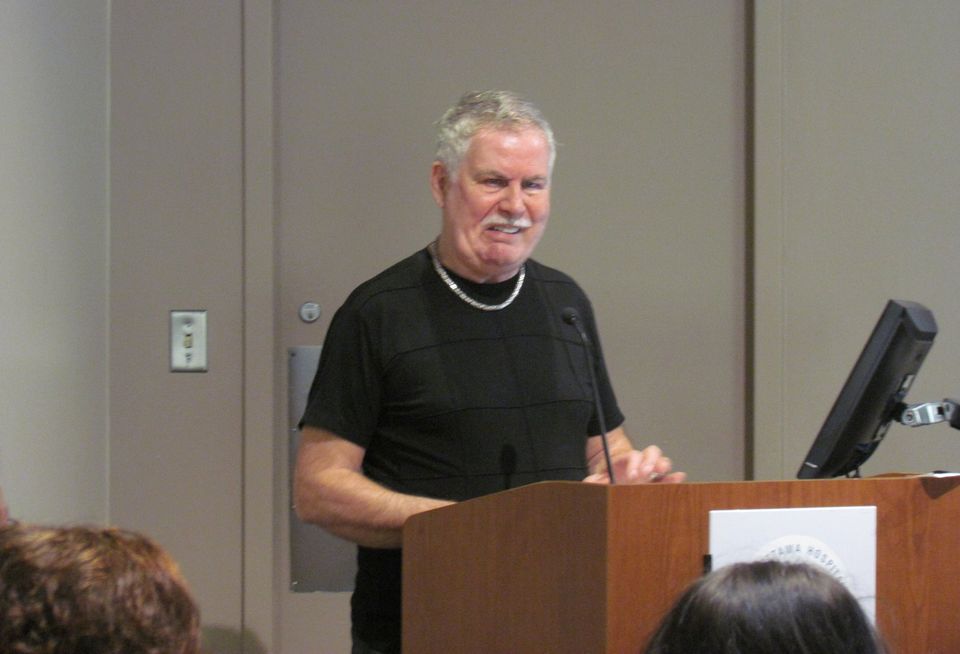 I would say, giving back to my community by painting, writing poems, and writing a book called "Hope, Recovery and a New Life," which details my recovery and includes several paintings that have encouraged me and others' healing process. Helping to raise funds through my story for ICU equipment, I was offered and filmed as a feature on Rogers Cable 22 and CTV and was graciously voted on to the “Amazing Persons Gala to raise awareness about strokes.
I would say, giving back to my community by painting, writing poems, and writing a book called "Hope, Recovery and a New Life," which details my recovery and includes several paintings that have encouraged me and others' healing process. Helping to raise funds through my story for ICU equipment, I was offered and filmed as a feature on Rogers Cable 22 and CTV and was graciously voted on to the “Amazing Persons Gala to raise awareness about strokes.
Now that you are a survivor, how are you living your life differently and why?
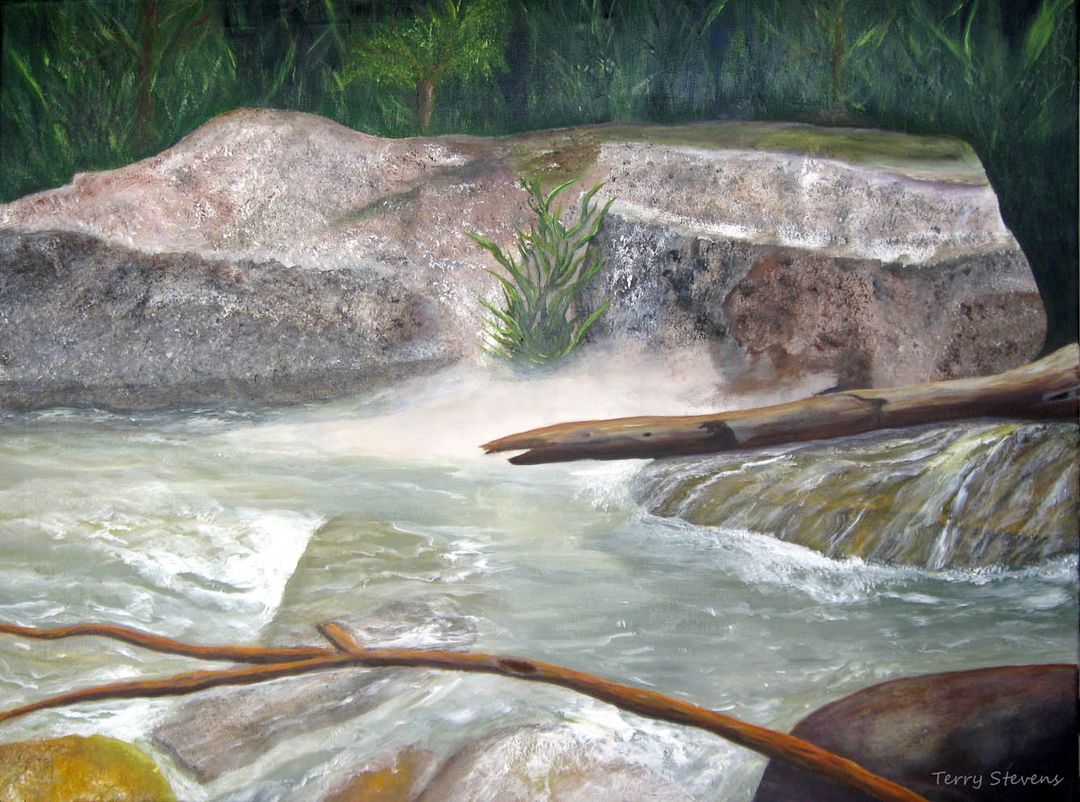 I love to paint, and I spend many hours at the easel, which has been healing for me as I see the colours coming alive on the canvas. Painting is a creative way of giving back and so I show my paintings on Facebook to encourage, inspire and share what has given me great fulfillment throughout my inner and outer journey. I am a self-taught painter; and I am constantly encouraged by my wife, who is a very accomplished artist. I find that artwork tells a story that can bring healing to the painter as well as the viewer. I am authoring another book about my life called “Riding the Sound Wave” which details my life, singing at Carnegie Hall 7 times, including 5 European tours with The Star Scape Singers conducted by Kenneth G. Mills.
I love to paint, and I spend many hours at the easel, which has been healing for me as I see the colours coming alive on the canvas. Painting is a creative way of giving back and so I show my paintings on Facebook to encourage, inspire and share what has given me great fulfillment throughout my inner and outer journey. I am a self-taught painter; and I am constantly encouraged by my wife, who is a very accomplished artist. I find that artwork tells a story that can bring healing to the painter as well as the viewer. I am authoring another book about my life called “Riding the Sound Wave” which details my life, singing at Carnegie Hall 7 times, including 5 European tours with The Star Scape Singers conducted by Kenneth G. Mills.
What three things would you tell a person who just had a stroke?
What is your one key message about your experience with stroke?
“Never give up hope that miracles are possible”
